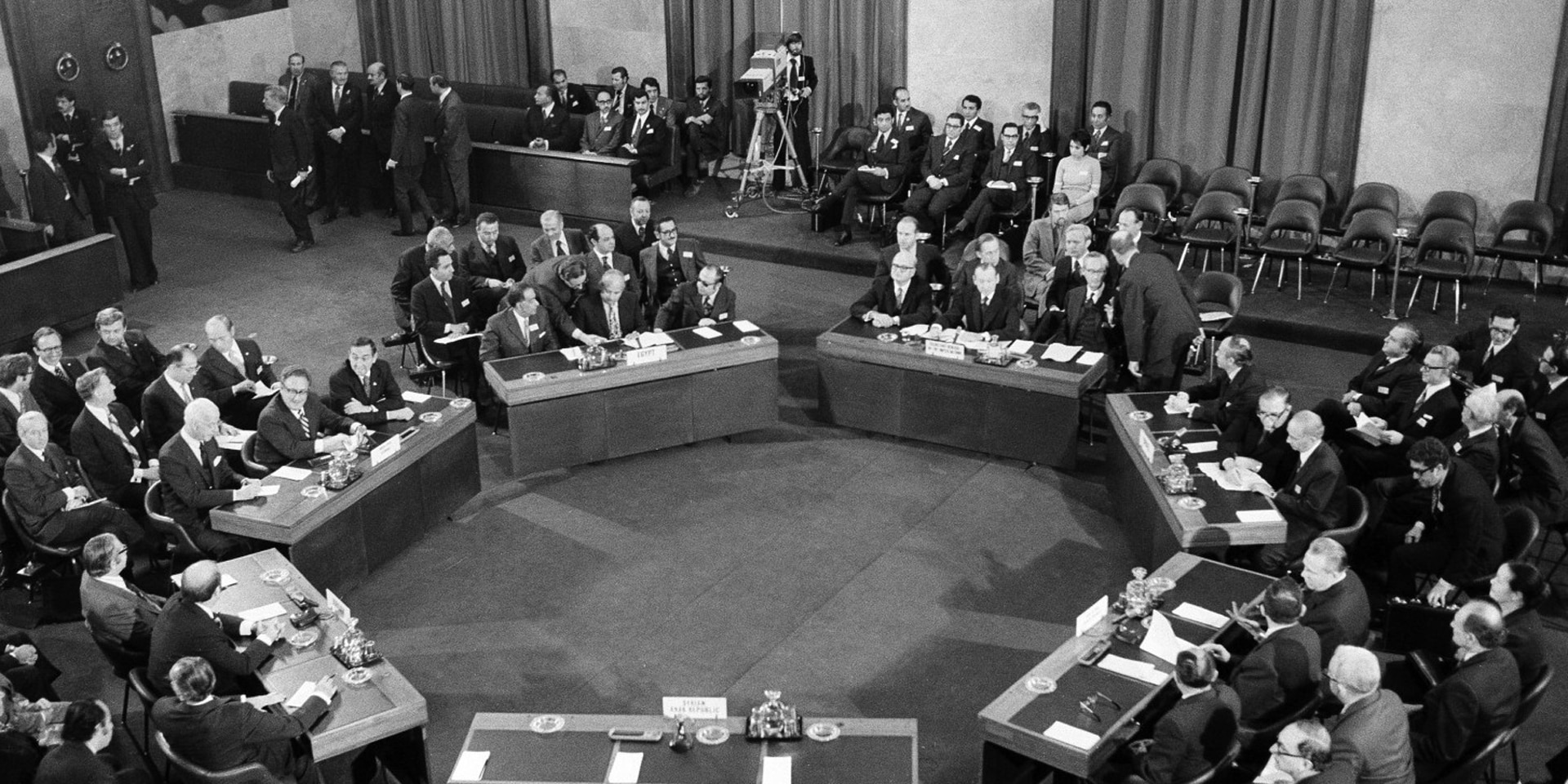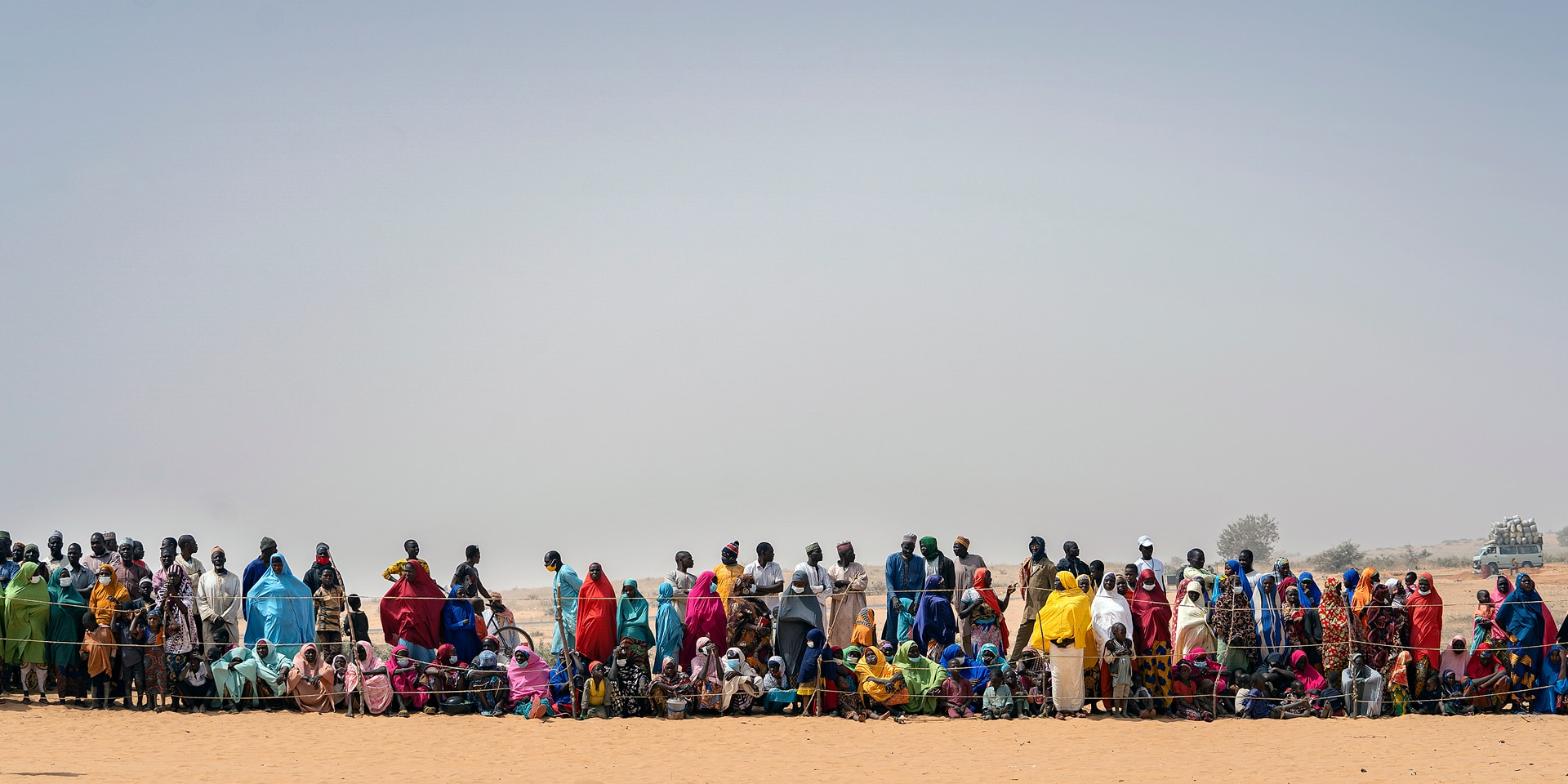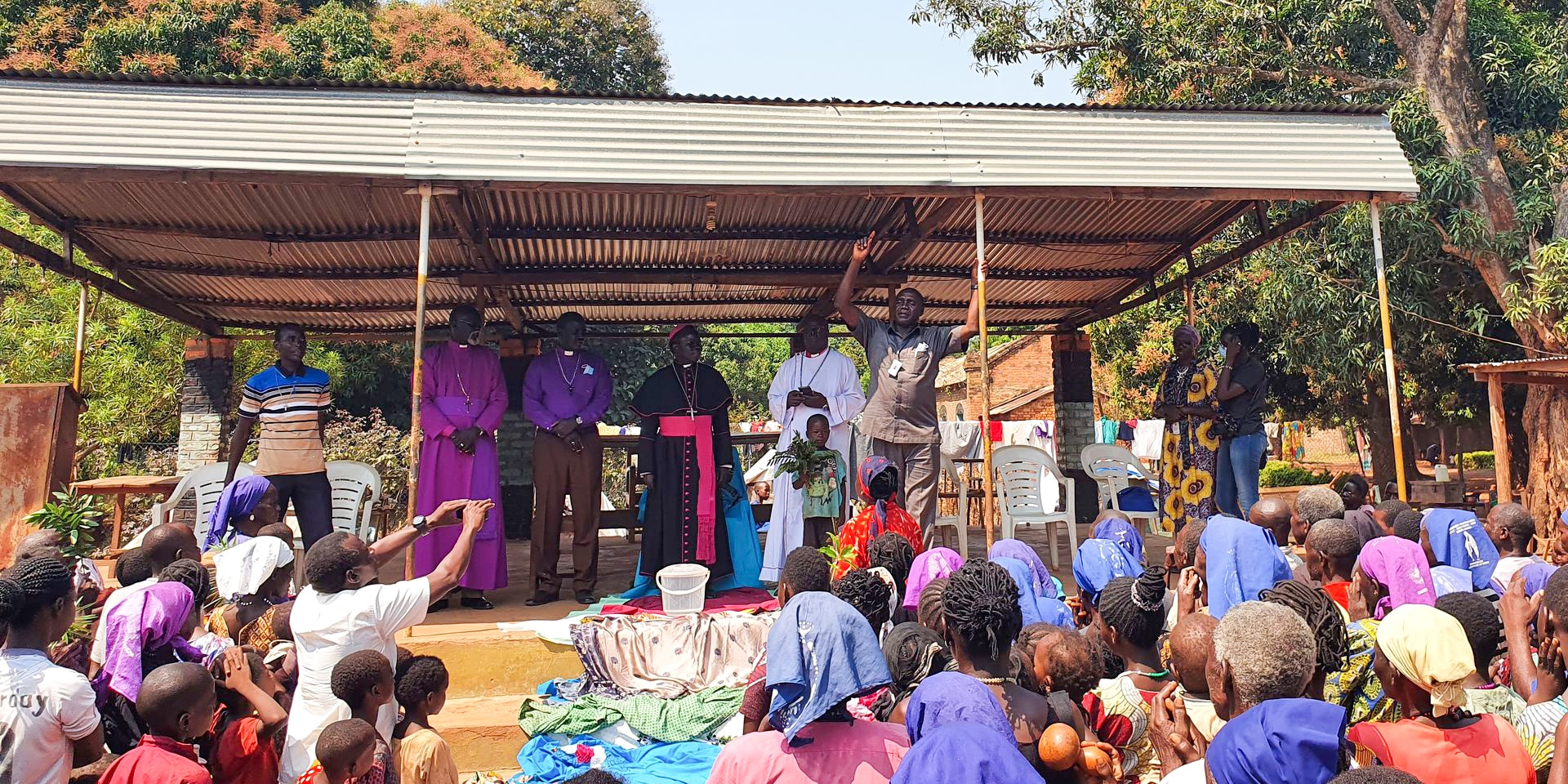What does it mean to create spaces for dialogue for peace? Examples from Africa
The word 'mediation' is often used in connection with Switzerland's 'good offices'. And rightly so. But that is not the whole picture: facilitating a peace process also entails creating spaces for dialogue between conflicting parties, often including armed groups, or involving the local community. We delve into the subject starting in Africa, where Switzerland's engagement on the ground enables us to discover more regions and more ways of offering good offices.
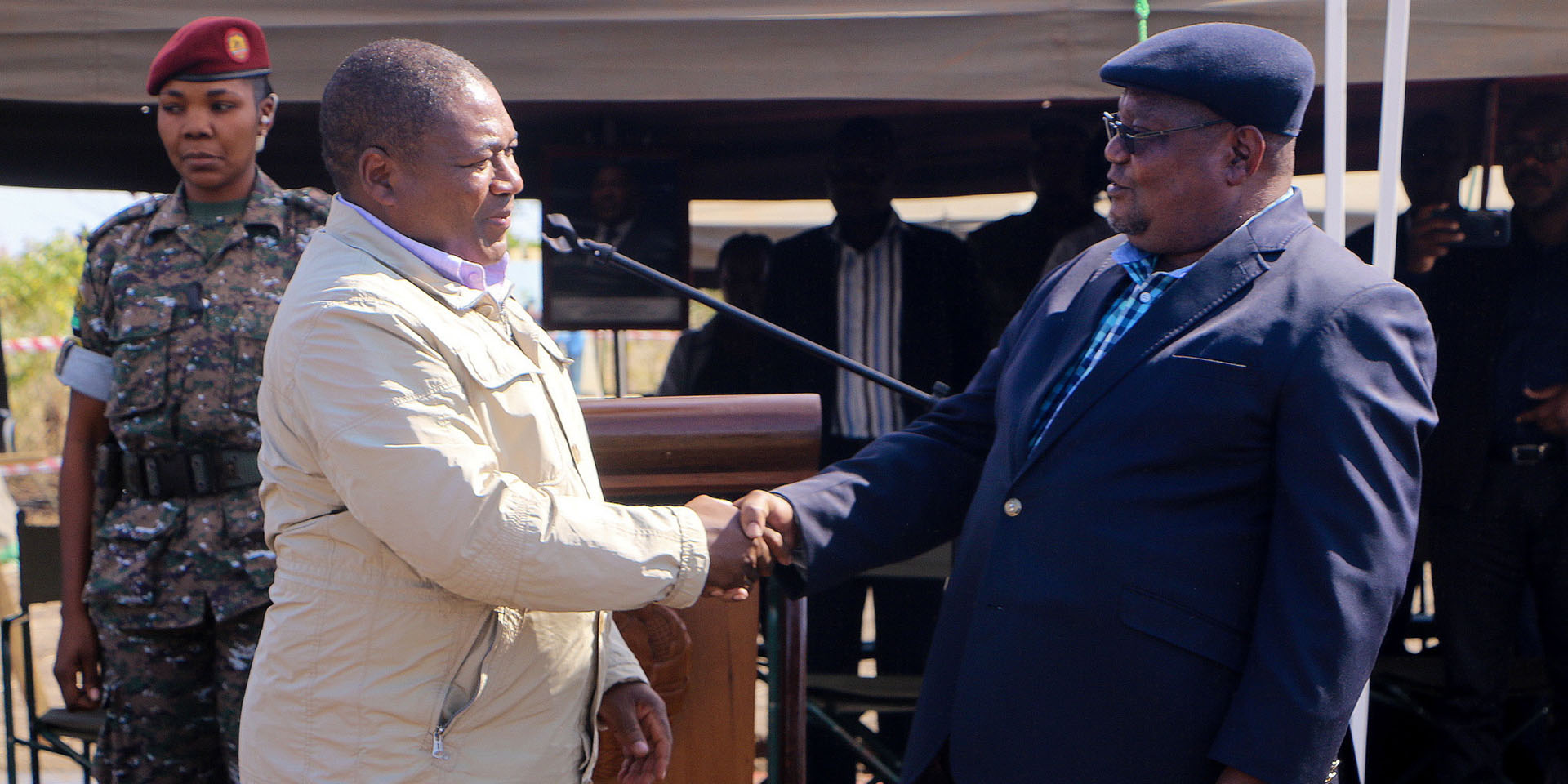
Il 23 giugno 2023 in Mozambico è stata chiusa l’ultima base militare del movimento di opposizione RENAMO. Durante una cerimonia, il presidente del movimento RENAMO e il presidente del Mozambico si stringono la mano. © Keystone
A hallmark of Swiss peace policy is reliability. It is precisely this relationship of trust – which remains solid even in the midst of global challenges and a changing geopolitical situation – that underpins the effectiveness of Switzerland's good offices. "Through trust it is possible to aim for lasting peace," as Federal Councillor Ignazio Cassis has reiterated on several occasions before the UN Security Council. Trust is indeed an essential starting point. But what does it mean in practice to provide good offices to facilitate a peace process? Half of Switzerland's peace policy programmes are on the African continent. We therefore start here. First stop: Maputo.
From mediation to peace agreement in Mozambique
On 23 June 2023, the last military base of the RENAMO opposition movement was closed in Mozambique. To understand the importance of this event for Mozambique and Switzerland, we need to take a step back. There have been two conflicting political groups in the country since the end of the civil war in 1992: the ruling FRELIMO party and the RENAMO opposition movement. In 2013, the internal armed conflict between the two groups escalated and Mozambican President Filipe Nyusi and then opposition leader Afonso Dhlakama asked Switzerland to facilitate a secret dialogue between the two warring parties. Switzerland's good offices were thus made available in the service of peace.
Mirko Manzoni, a former Swiss ambassador and since 2019 the UN secretary-general's personal envoy to Mozambique, initiated a peace process in this context, which made a temporary ceasefire possible in December 2016. In August 2019, it culminated in the signing of the Comprehensive Peace Agreement. The Maputo Accord for Peace and National Reconciliation was signed in Maputo by Federal Councillor Ignazio Cassis, whose presence underlined Switzerland's willingness to continue to support Mozambique in the implementation of this agreement. Trust – strengthened by the presence of the head of the FDFA, the synergies with the former Swiss ambassador and the 40 years of humanitarian projects on the ground – played an essential role. Since 2019, 5,221 ex-combatants have been demobilised, and the last of 16 RENAMO military bases was closed in June 2023.
The disarmament and demobilisation process is now complete, but Switzerland will remain fully engaged alongside the UN in the implementation of the other pillars of the Maputo Accord, in particular its socio-economic dimension. "I reiterate Switzerland's commitment to support Mozambique on its path to lasting peace and stability. Promoting peace and offering good offices and mediation are fundamental objectives of Swiss foreign policy, as enshrined in our Federal Constitution," said Simon Geissbühler, head of the Peace and Human Rights Division.
Platforms for dialogue with armed groups: the example of the DRC
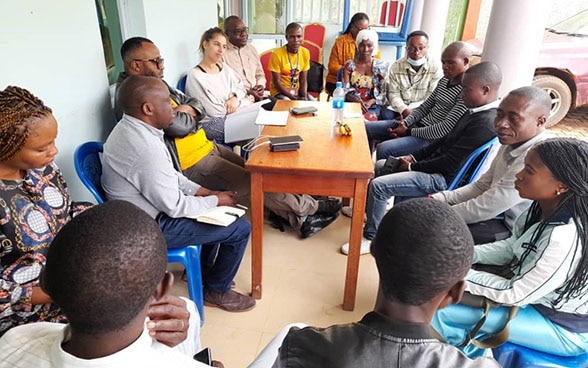
In keeping with the FDFA's Sub-Saharan Africa Strategy 2021–24, the Peace and Human Rights Division is committed to promoting peace by focusing on the most fragile contexts, where armed conflicts and insurgencies are ongoing. "The priority areas of the regional programme in sub-Saharan Africa are the Sahel and the Great Lakes region, where the advance of non-state armed groups is leading to increased insecurity and attacks on civilians," explains Patrizia Palmiero, head of the FDFA's Peace – Africa section.
Take, for example, the eastern provinces of the Democratic Republic of the Congo. What can be done specifically to help reduce armed violence? The great complexity that characterises this context must be taken into account in any intervention. One cannot intervene in the east of the country without considering the regional aspects related to the neighbouring countries. Moreover, more than 30 years of conflict have led to the creation of around 120 armed groups, and the reasons why these fighters have resorted to violence are diverse: some take up arms to defend their communities, others make political demands. For example, Switzerland works with a long-standing partner, the NGO Action for Peace and Cooperation (APC). Through the Tujenge Amani (building peace) initiative, spaces for dialogue are organised to facilitate the release of hundreds of young people from armed groups and their social and economic reintegration into their home communities.
Sahel: dialogue with extremist groups
The situation in West Africa and the central Sahel varies greatly from country to country. The central Sahel (Mali, Niger and Burkina Faso) has been ravaged by years of armed violence, causing great suffering to the population. This security crisis also involves other states in the region, where violent activities by various actors are taking place. Added to this are the humanitarian consequences and political crises.
Based on its experience in Mali, the FDFA's Peace and Human Rights Division is engaged in dialogue processes and concrete solutions involving armed groups willing to engage in dialogue. In 2022, Switzerland also facilitated the rapprochement between the Malian transitional government and the armed movements in the north to find a way out of the crisis and to promote the implementation of the peace agreement.
In 2016, Switzerland and several partners also launched a regional initiative to prevent violent extremism. The initiative has already brought together more than 2,000 individuals from a wide range of backgrounds.
What does it mean to find concrete solutions for peace with armed groups and to prevent violent extremism in a region as complex as the Sahel? This topic will be the subject of a second article.
Links
- Peacebuilding, FDFA
- Mozambique, FDFA
- Press release, Switzerland welcomes successful completion of Mozambique's demobilisation, 23.06.2023
- Press release, Ignazio Cassis attends the ceremony marking the signing of Swiss-brokered peace treaty in Mozambique, 06.08.2019
- The Great Lakes Region, FDFA
- Religion, politics and conflicts, FDFA
- Preventing violent extremism (PVE), FDFA

